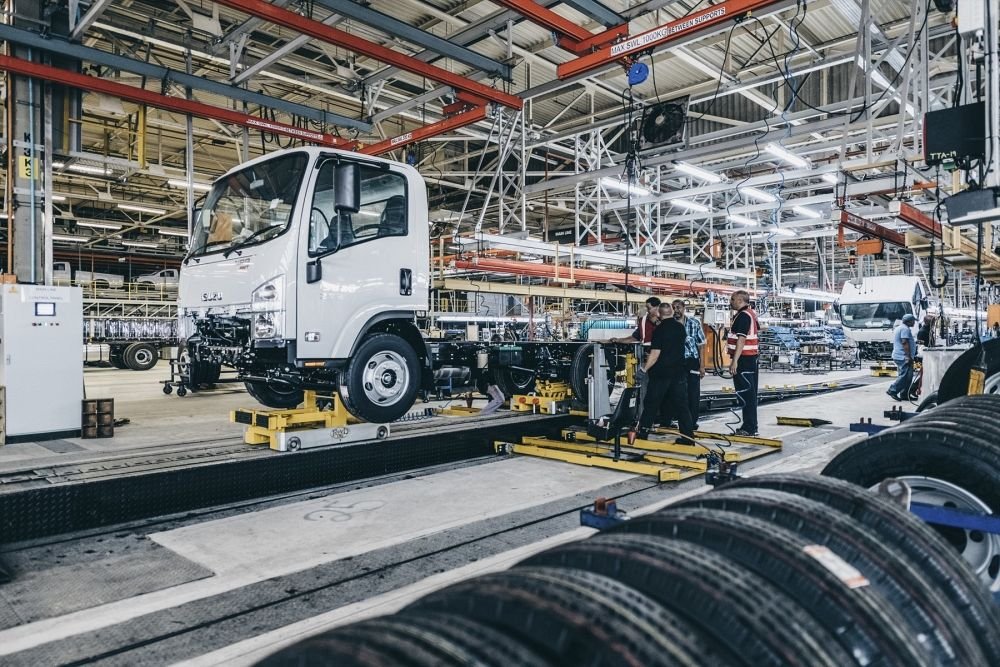Business
The South African Auto Industry is Shifting Gears: Here’s What It Means for Jobs and the Economy

If you’ve been paying attention to South Africa’s vehicle market lately, you might have noticed some good news finally revving up after a slow patch. After a tricky 2024 where new car sales slipped and confidence waned, 2025 is showing the first real signs that the auto sector a key engine of the economy and jobs is gaining momentum once again.
From Slump to Surge: What’s Driving the Change?
Last year wasn’t kind to South Africa’s automotive sector. Vehicle sales dropped 3%, marking the slowest year since the pandemic struck. Naamsa, the Automotive Business Council, pointed fingers at economic headwinds: slow growth, weak consumer confidence, and tight wallets. But the tide is turning, and how.
May 2025 brought a notable jump new vehicle sales soared by 22% compared to the previous May, hitting 45,308 units sold. Passenger cars were the standout, with a 30% leap, while workhorses like bakkies and minibuses nudged up nearly 6%. This eight-month streak of growth suggests the industry isn’t just surviving, it’s getting ready to thrive.
Why This Matters to Every South African
The automotive sector isn’t just about shiny new cars on showroom floors. It’s a massive ecosystem supporting hundreds of thousands of livelihoods from factory workers and dealership staff to mechanics, transporters, and finance professionals. The National Automobile Dealers’ Association (NADA) estimates that over 1,600 dealerships, plus all their linked businesses, keep roughly half a million to a million South Africans employed.
When the industry falters, so do these jobs. When it revs up, it’s a signal of broader economic health, impacting everything from retail spending to logistics and even government revenues.
The Role of Policy: A Boost from the Reserve Bank
Many in the industry have welcomed the South African Reserve Bank’s decision to cut the repo rate by 25 basis points in May. This move ended a long period of rising interest rates that had made borrowing costlier and squeezed both buyers and manufacturers. Lower rates mean cheaper car loans for consumers and reduced costs for manufacturers investing in new technology and production upgrades.
Naamsa CEO Mikel Mabasa sums it up: “The SARB’s cut is timely and supports affordability, helping the sector compete globally despite challenges.”
New Opportunities and Ongoing Challenges
Medium and heavy commercial vehicles, crucial for logistics and construction, also posted healthy growth — a sign that other parts of the economy are picking up steam too.
Yet, it’s not all smooth sailing. Vehicle exports dipped by nearly 15% in May, a red flag largely linked to one manufacturer halting production temporarily for upgrades. More broadly, the global market remains uncertain amid rising protectionism and trade tensions, making export growth fragile.
Naamsa stresses that keeping South African-made vehicles competitive overseas will require smart policy, market diversification, and a resilient supply chain.
A Future Built on Innovation and Stability
The push to lower inflation targets and maintain steady interest rates offers hope for the industry to invest in modernization and new models. South Africa’s auto sector has long been a manufacturing jewel for the continent, and these developments could help secure its global standing.
But it’s a delicate balance. The industry must keep pace with global technology trends and changing consumer demands while navigating local economic realities.
What South Africans Can Expect Next
For ordinary South Africans, the upswing means more than just a flashier car on the road. It signals potential job security, more opportunities for new entrants into the workforce, and a healthier economy that can support local businesses beyond just the motor industry.
Social media conversations have mirrored this cautious optimism, with many welcoming the growth but reminding policymakers and manufacturers that sustained effort is needed to turn this recovery into lasting prosperity.
{Source: BusinessTech}
Follow Joburg ETC on Facebook, Twitter , TikTok and Instagram
For more News in Johannesburg, visit joburgetc.com



























